| | Trump doubles down on his trade war and takes a hawkish turn on Russia, the EU announces a Gaza aid ͏ ͏ ͏ ͏ ͏ ͏ |
| |  | Flagship |  |
| |
|
The World Today | 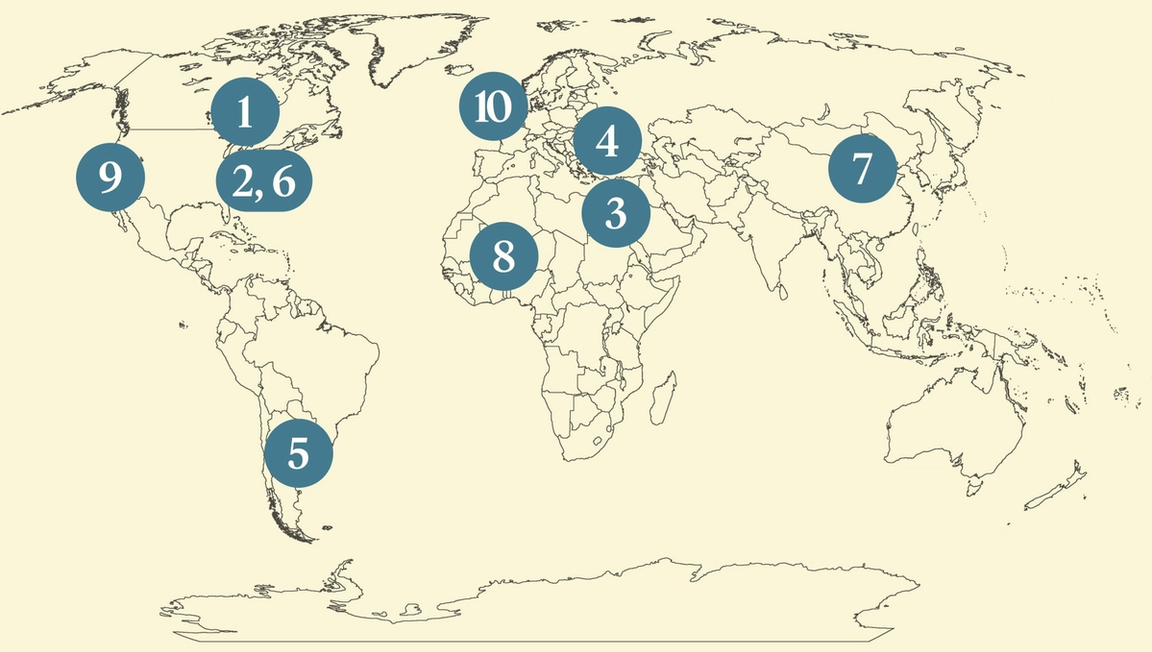 - Trump threatens new tariffs
- US turns against Russia
- EU makes Gaza aid deal
- Turkey’s dissent crackdown
- Milei faces pushback
- US government job cuts
- Experts dismiss Xi rumors
- Scramble for gold in Africa
- AI air traffic control
- Bayeux tapestry to UK
 Uniqlo’s climate change windfall, and a new recording of Bartók’s great ‘psychological chess game.’ |
|
Trump threatens new tariffs |
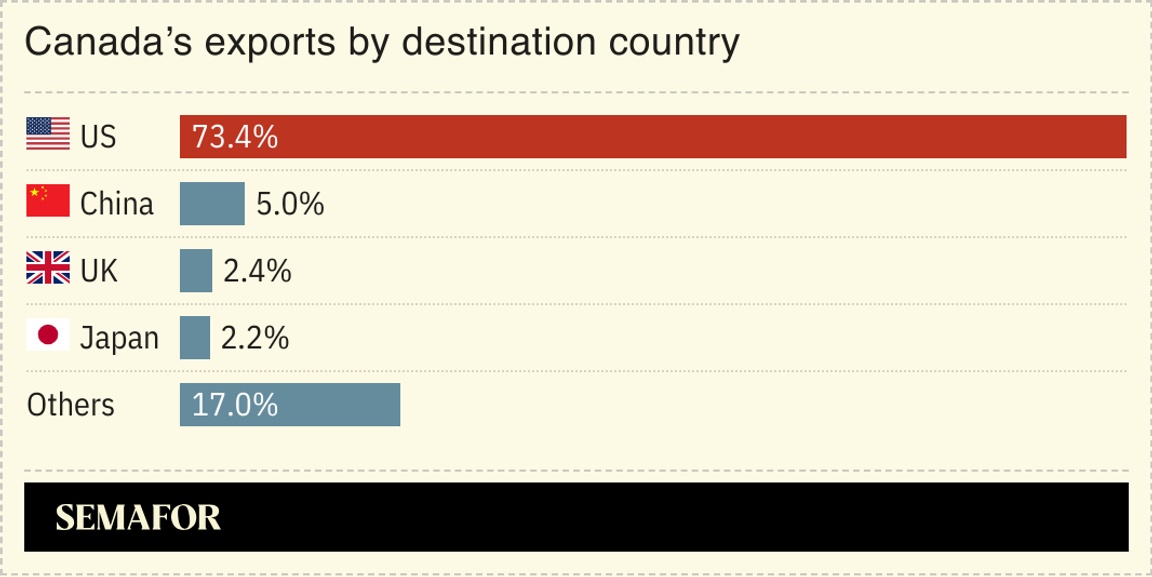 US President Donald Trump threatened a fresh wave of across-the-board tariffs, with particularly onerous levies on Canada. Doubling down on his trade war, Trump suggested a universal rate of up to 20% in an NBC interview, and warned of 35% tariffs on Canadian imports, with the levies coming into force on Aug. 1. The Canada duties in particular point to Trump’s use of tariffs to extract political leverage rather than to address trade imbalances, a strategy The Wall Street Journal described as “breaking with more than a half-century of global economic precedent.” Trump argued that Ottawa had failed to tackle fentanyl, and has similarly threatened tariffs against Brazil for its prosecution of a former president Trump views as an ally. |
|
 Marcos Brindicci/File Photo/Reuters Marcos Brindicci/File Photo/ReutersWashington’s hawkish turn against Russia intensified as US President Donald Trump said he would send weapons to Ukraine via NATO and may back new sanctions on Moscow. The twin moves represent a sharp contrast to the early months of the Trump administration, which were characterized by fitful attempts to coax Russia into a ceasefire as part of a broader rapprochement. Alongside talks by Kyiv’s US and European allies in Rome to bolster Ukraine’s post-war reconstruction, the latest announcements suggest growing momentum to repel Russia’s recent battlefield progress. Still, analysts cautioned against reading too much into the White House’s apparent shift: “Trump’s record on Ukraine is reason for caution,” a former top US diplomat argued. “I’m not holding my breath.” |
|
EU deal to increase Gaza aid |
 Hatem Khaled/Reuters Hatem Khaled/ReutersThe European Union agreed a deal with Israel to increase humanitarian aid into Gaza, even as Israeli attacks killed people waiting for medicine and food in the enclave. A hospital said 18 Palestinians, including children, were killed by a missile that hit an aid clinic, while a further 73 people died in other strikes. More than 500 Gazans have been killed waiting for aid since May, when a controversial US-backed organization took over distribution. The EU deal includes reopening crossing points from Jordan and Egypt and a “substantial” increase in the number of trucks carrying food and other supplies: A fuel shortage has left hospitals struggling to run incubators, dialysis machines, and other crucial life support. |
|
Turkey arrests opposition officials |
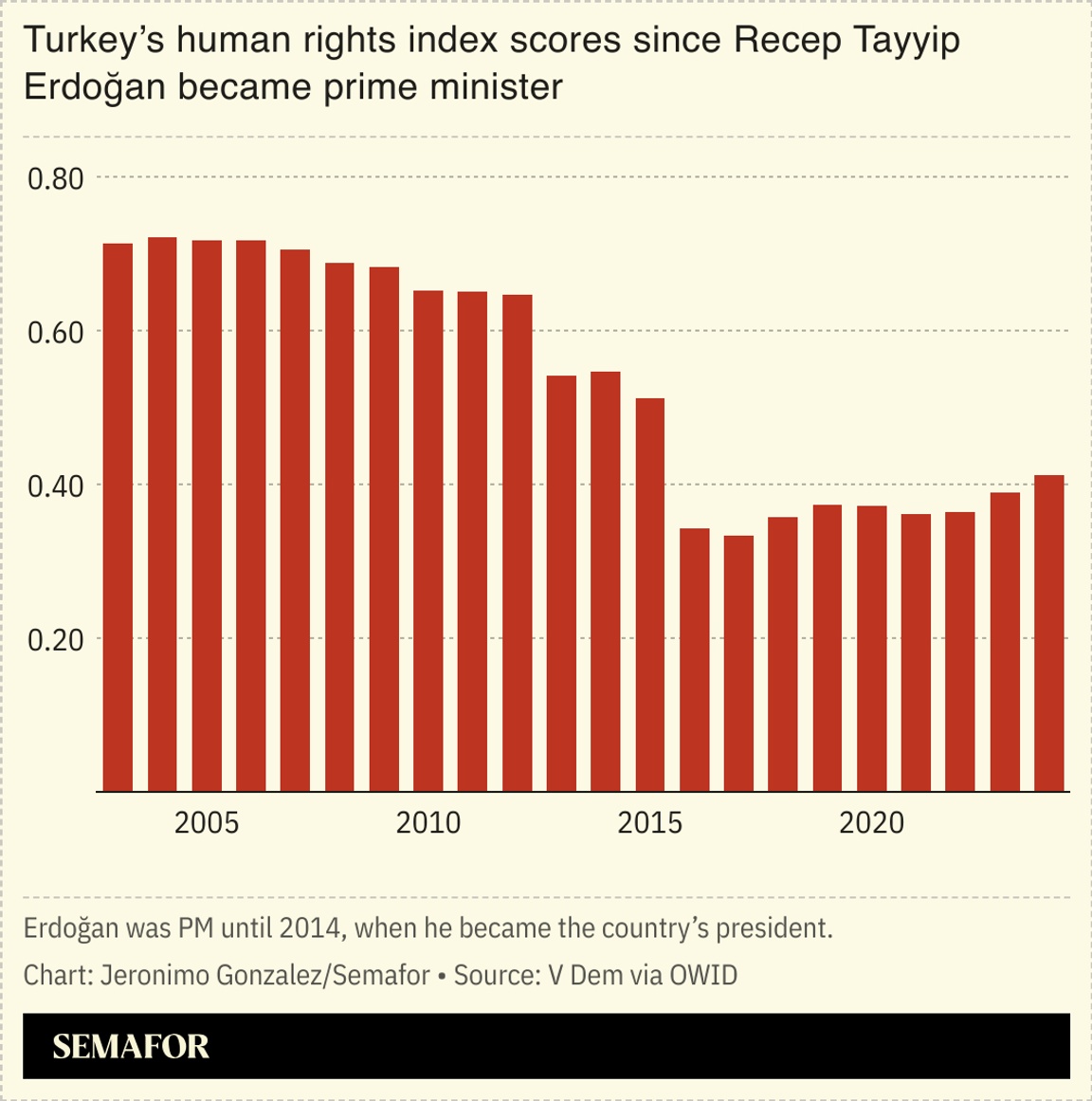 Four Turkish mayors who had opposed the country’s president were arrested this week, amid a widening crackdown that has ensnared more than 500 government critics. Ankara has said the detentions were part of a wide-ranging effort to battle corruption, but the vast majority of those targeted belong to the opposition CHP: The mayors detained by police were all members of the party, while a Reuters tally puts the overall total at 14 elected CHP mayors, as well as upward of 200 party members or affiliated local officials. The arrests come with elections on the horizon: A nationwide vote must be held before 2028 if President Recep Tayyip Erdoğan is to run again — unless he amends a constitutional term limit. |
|
Lawmakers push back on Milei |
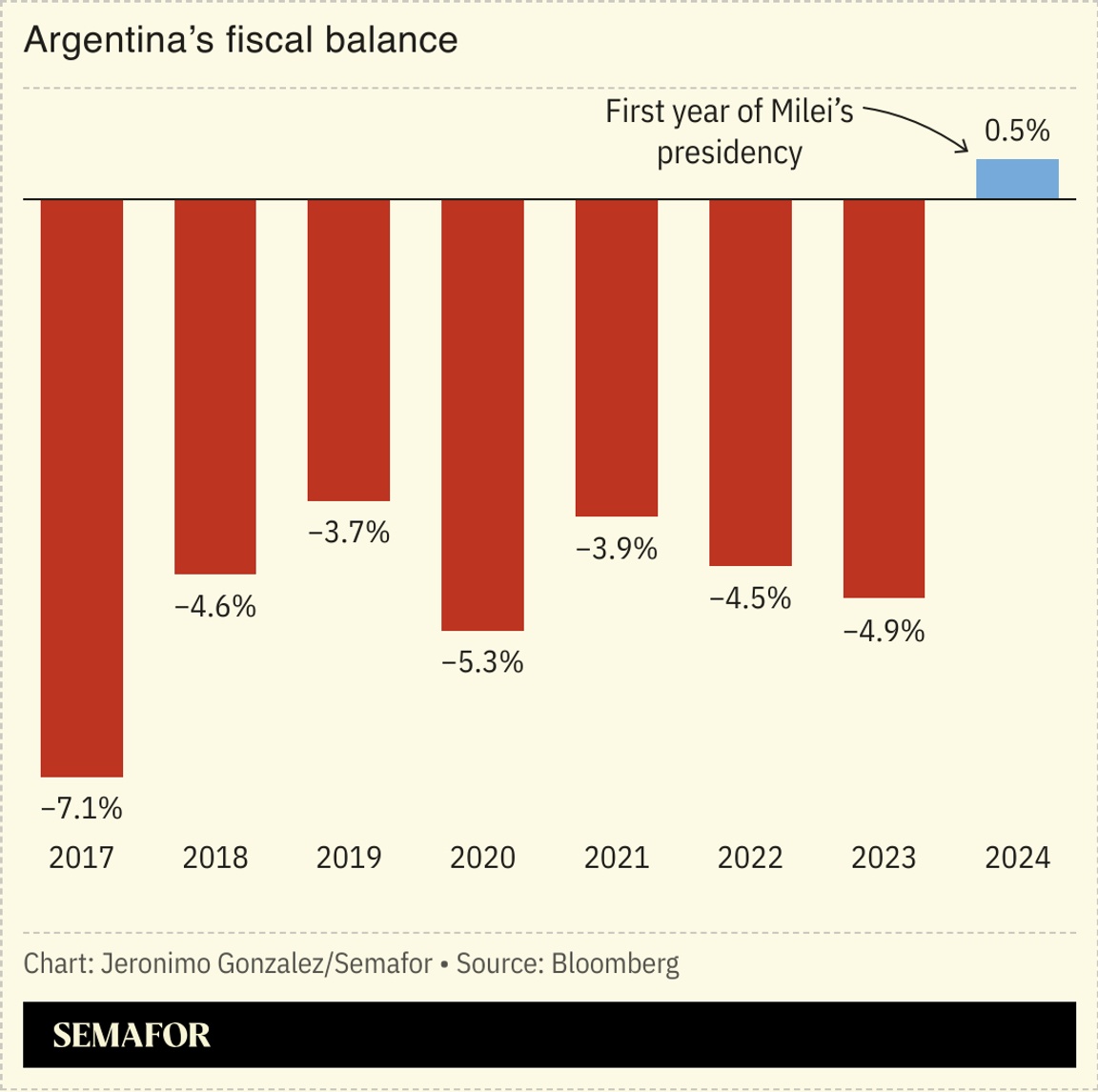 Argentina’s senate approved a pension increase, putting it on a collision course with President Javier Milei and his austerity agenda. Milei, who has slashed public spending by 30% since taking office in 2023, vowed to veto the legislation, which he called an attempt at an “institutional coup.” His cost-cutting has led to Argentina’s first budget surplus in years while helping tame runaway inflation, though austerity has also pushed poverty rates up, denting his popularity ahead of October legislative elections. “Fiscal conservatism isn’t always desirable,” economist Noah Smith wrote. “But Milei is showing that the costs often aren’t as high as many progressives warn.” |
|
 Mandel Ngan/Pool via Reuters Mandel Ngan/Pool via ReutersThe US State Department told its staff that about 15% of the workforce would be laid off in the coming days. The news follows the Supreme Court’s lifting of a ban on mass job cuts in federal agencies, and represents a growing US retrenchment: The US Agency for International Development, the world’s largest state-backed aid provider, closed down last week, which scientists said could lead to 14 million extra deaths from preventable diseases in the developing world by 2030. US-led global initiatives fighting malaria and HIV have also been eliminated. The White House’s isolationist agenda is facing obstacles in courts: A planned end to birthright citizenship was blocked by a US judge. |
|
Experts downplay Xi rumors |
 Tyrone Siu/Reuters Tyrone Siu/ReutersTop analysts played down speculation that Chinese leader Xi Jinping’s grip on power may be weakening. The Chinese Communist Party’s opaque nature drives guesswork over who is up and down in Beijing, with rumors often intensifying ahead of the party’s annual summer retreat: The latest theorizing was sparked by Xi’s prolonged public absences and decision to skip this month’s BRICS summit. But experts were skeptical: Recently announced CCP regulations that institutionalize decision-making “are likely less a signal of Xi’s waning star and more a run-of-the-mill move,” one said, while another lamented that the rumors relied on “selective, often decontextualized, observations.” The China Media Project even reviewed whether Xi’s prominence in state media had declined. Its conclusion: “He remains dominant.” |
|
 YouTube’s favorite doctor won’t stop talking about politics. This week on Mixed Signals, Ben and Max talk to Doctor Mike, a family medicine physician with over 14 million subscribers on YouTube, about the space he occupies online, his critiques on the government and legacy media’s ability to communicate medical information, and why he’s not afraid to get political by calling out RFK Jr. and the current administration. |
|
Scramble for gold in Africa |
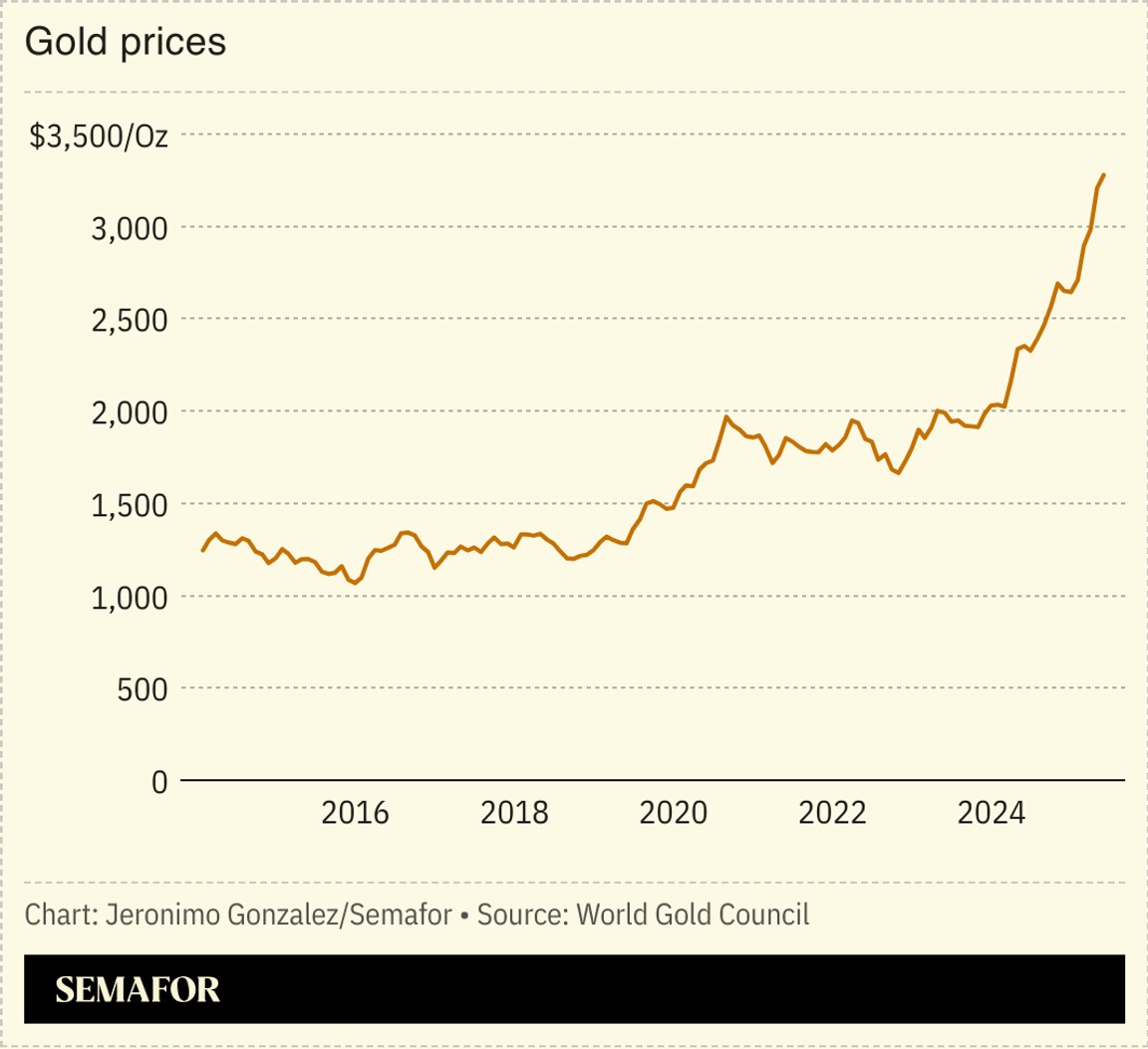 A Malian military helicopter airlifted more than $100 million in gold from the country’s biggest mine, allegedly to fund government operations. The mine is part of a protracted dispute between its Canadian owner and Malian authorities, and comes as the soaring price of gold, which investors have flocked to amid a global trade war, has driven a scramble for control of the metal across Africa. This week, Ghana announced the creation of a new task force to crack down on gold smuggling and illegal mining, as Africa’s top producer looks to recoup billions in losses. Meanwhile Guinea announced an almost $500 million investment in a new gold mine, slated to be one of the largest in West Africa. |
|
AI in air traffic control |
 Manon Cruz/Reuters Manon Cruz/ReutersSingapore and London, two of the world’s most congested airspaces, are testing artificial intelligence air traffic control systems. Air traffic controllers are notoriously overworked, having to monitor thousands of flights a day and frequently forced to rely on decades-old technology. The aviation industry is exploring the use of AI — which does not get tired and can pay attention to several inputs at once — to monitor aircraft. However, using AI would raise legal and ethical questions, such as who is responsible for accidents, Scientific American reported. ATCs are under particular scrutiny after January’s crash in the US capital between an airliner and a military helicopter, which killed 67: Experts believe human error played a role. |
|
|